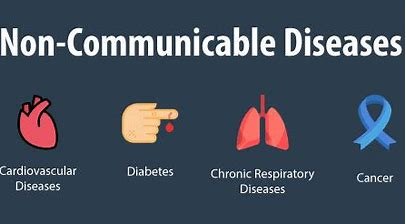The government has expanded its prevention and control program for non-communicable diseases (NCDs) in response to the rising burden of these diseases and the associated health costs. Non-communicable diseases account for the majority of deaths in the country, with cardiovascular diseases leading the mortality causes. The government has now included chronic obstructive pulmonary diseases, asthma, chronic kidney diseases, and non-alcoholic fatty liver diseases in the program, which has been renamed the National Programme for Prevention and Control of Non-Communicable Diseases (NP-NCD). The World Health Organization estimates that NCDs contribute to 63% of all deaths in India, with cardiovascular diseases being the leading cause, followed by chronic respiratory diseases, cancers, and diabetes. The government emphasizes the importance of comprehensive primary health care in reducing the economic impact of NCDs and has launched the Ayushman Bharat scheme to ensure universal health coverage. The operational guidelines for the NP-NCD have been developed to provide policymakers, government officials, NGOs, and healthcare providers with a framework for reducing morbidity and mortality related to NCDs. The guidelines aim to improve various NCD indicators by 2030 through effective implementation strategies at all levels of care. The government has shared the guidelines with states and Union territories to strengthen healthcare services and enable a continuum of care for NCDs.

